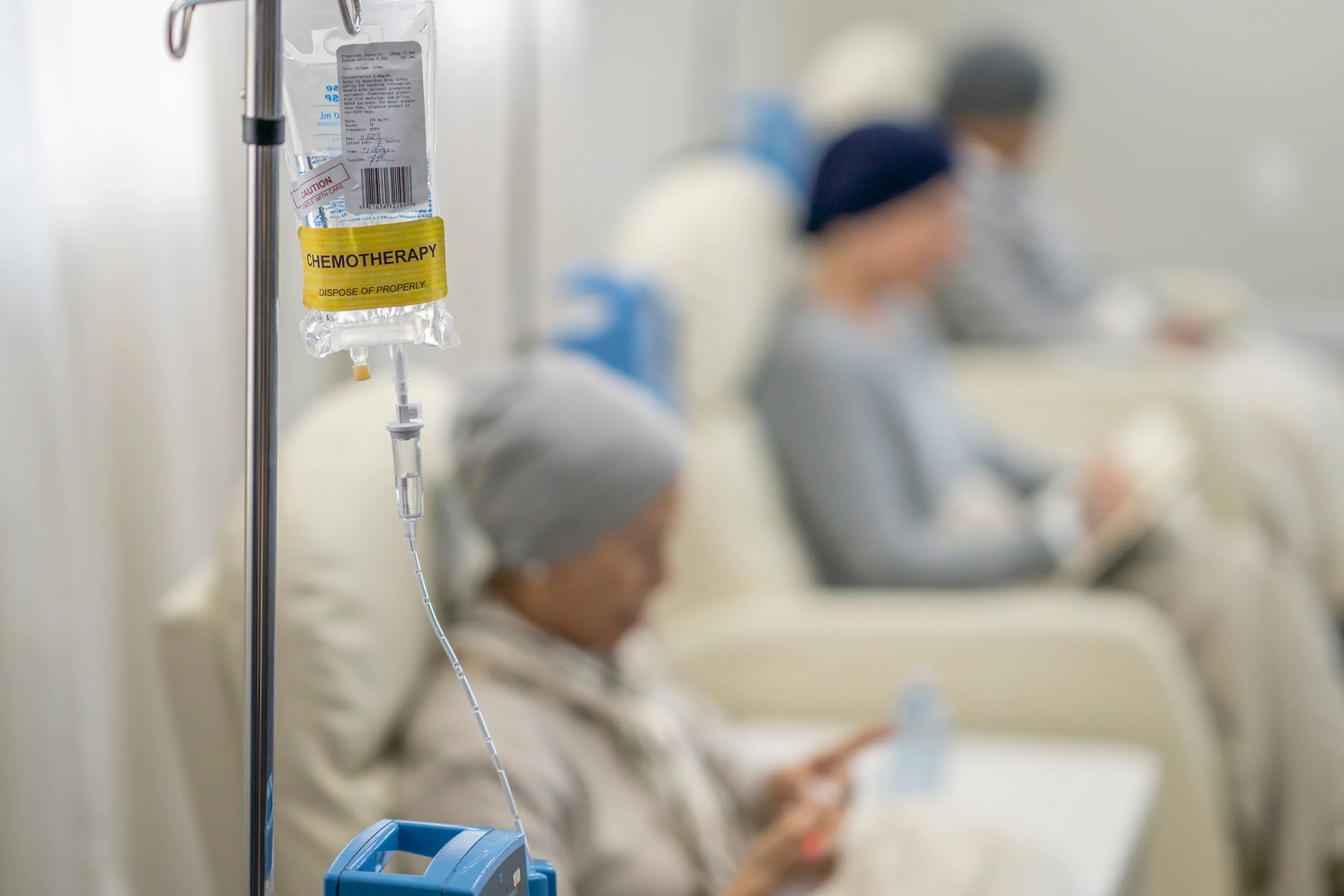Chemotherapy and other treatments that target cancer cells can also harm patients’ immune cells. Each year, this leaves tens of thousands of cancer patients with weakened immune systems vulnerable to infections that can become life-threatening if not managed properly.
Doctors face the challenge of balancing the administration of enough chemotherapy to eliminate cancer without causing the patient’s white blood cell count to drop dangerously low, a condition known as neutropenia. This often results in patients being socially isolated between chemotherapy cycles. Currently, the only way for doctors to monitor their patients’ white blood cells is through blood tests.
Leuko is developing a home-based white blood cell monitor to provide doctors with a more comprehensive view of their patients’ health remotely. Instead of drawing blood, the device uses light to scan through the skin at the top of the nail and employs artificial intelligence to analyze and detect when white blood cell levels become dangerously low.
The technology was first conceived by MIT researchers in 2015. Over the following years, they developed a prototype and conducted a small study to validate their approach. Today, Leuko’s devices have accurately detected low white blood cell counts in hundreds of cancer patients without a single drop of blood being drawn.
"We hope this will significantly improve how patients are monitored and cared for on an outpatient basis," says Ian Butterworth, co-founder and CTO of Leuko, and a former research engineer at MIT’s Research Laboratory of Electronics. "There is also a personal side for patients. They can feel vulnerable around others and currently have little to do. This means that if they want to see their grandchildren or family, they are constantly wondering, ‘Am I at high risk?’"
The company has worked with the Food and Drug Administration (FDA) over the past four years to design studies confirming that its device is accurate and easy for untrained patients to use. Later this year, they plan to launch a pivotal study to gain FDA approval.
Once the device becomes a recognized tool for patient monitoring, the Leuko team believes it could also offer doctors a new way to optimize cancer treatment.
"Some of the doctors we’ve spoken to are very excited because they think future versions of our product could be used to personalize the chemotherapy dose for each patient," says Carlos Castro-Gonzalez, co-founder and CEO of Leuko and a former MIT postdoc. "If a patient does not become neutropenic, it could be a sign that you could increase the dose. Each treatment could then be based on the individual reaction of each patient."
Monitoring Immune Health
Leuko’s co-founders, Ian Butterworth, Carlos Castro-Gonzalez, Aurélien Bourquard, and Alvaro Sanchez-Ferro, arrived at MIT in 2013 as part of the Madrid-MIT M+Vision Consortium, a collaboration between MIT and Madrid that is now part of MIT linQ. The program brought biomedical researchers from around the world to MIT to work on translational projects with institutions in Boston and Madrid.
The program, initially managed by MIT’s Research Laboratory of Electronics, challenged members to address significant unmet needs in medicine and connected them with MIT faculty from across the institute to develop solutions. Leuko’s founders also received support from MIT’s entrepreneurial ecosystem, including the Venture Mentoring Service, the Sandbox Innovation Fund, the Martin Trust Center for Entrepreneurship, and the Deshpande Center. After spinning out from MIT, the company raised seed and Series A funding rounds led by Good Growth Capital and HTH VC.
"I didn’t even realize entrepreneurship was a career option for a PhD student [like myself]," says Castro-Gonzalez. "I thought that after the fellowship, I would apply for faculty positions. That was the career path I had in mind, so I was very excited about MIT’s focus on translating science into products that people can benefit from."
The founders of Leuko knew that cancer patients would benefit the most from a non-invasive white blood cell monitor. Unless patients go to the hospital, they can currently only monitor their temperature from home. If they show signs of fever, they are advised to go to the emergency room immediately.
"These infections occur quite frequently," explains Sanchez-Ferro. "One in six cancer patients undergoing chemotherapy will develop an infection where their white blood cell count is extremely low. Some of these infections unfortunately result in patient deaths, which is particularly terrible because they are due to the treatment rather than the disease. [Infections] also mean that chemotherapy is interrupted, increasing negative clinical outcomes for patients."
Leuko’s optical device works by imaging the capillaries, or small blood vessels, just above the nail, which are more visible and already used by doctors to assess other aspects of vascular health. The company’s portable device analyzes white blood cell activity to detect extremely low levels for care teams.
In a 2019 study of 44 patients, the Leuko team showed that their approach could detect when white blood cell levels fell below a critical threshold, with minimal false positives. The team has since developed a product that a larger study has shown can be used by unsupervised patients at home to transmit immune information to doctors.
"We are working in a completely non-invasive way, so you can perform white blood cell measurements at home and much more frequently than is possible today," says Bourquard. "The key aspect of this method is that it allows doctors to identify patients whose immune systems are becoming so weak that they are at high risk of infection. If doctors have this information, they can offer preventive treatment in the form of antibiotics and growth factors. Research estimates that this would eliminate 50 percent of hospitalizations."
Expanding Applications
Leuko’s founders believe their device will help doctors make more informed decisions about patient care. They also see promise for the device in monitoring the health of patients with other conditions.
"The long-term vision of the company is to make this accessible to other patient populations who could also benefit from increased immune system monitoring," says Castro-Gonzalez. "This includes patients with multiple sclerosis, autoimmune diseases, organ transplants, and patients brought to emergency rooms."
The Leuko team even envisions a future where their device could be used to monitor other blood biomarkers.
"We believe it could be a technology platform," says Castro-Gonzalez. "We are capturing these non-invasive videos of blood flowing through capillaries. Part of the company’s vision is to measure other blood parameters beyond white blood cells, including hemoglobin, red blood cells, and platelets. All of this is part of our roadmap for the future."



